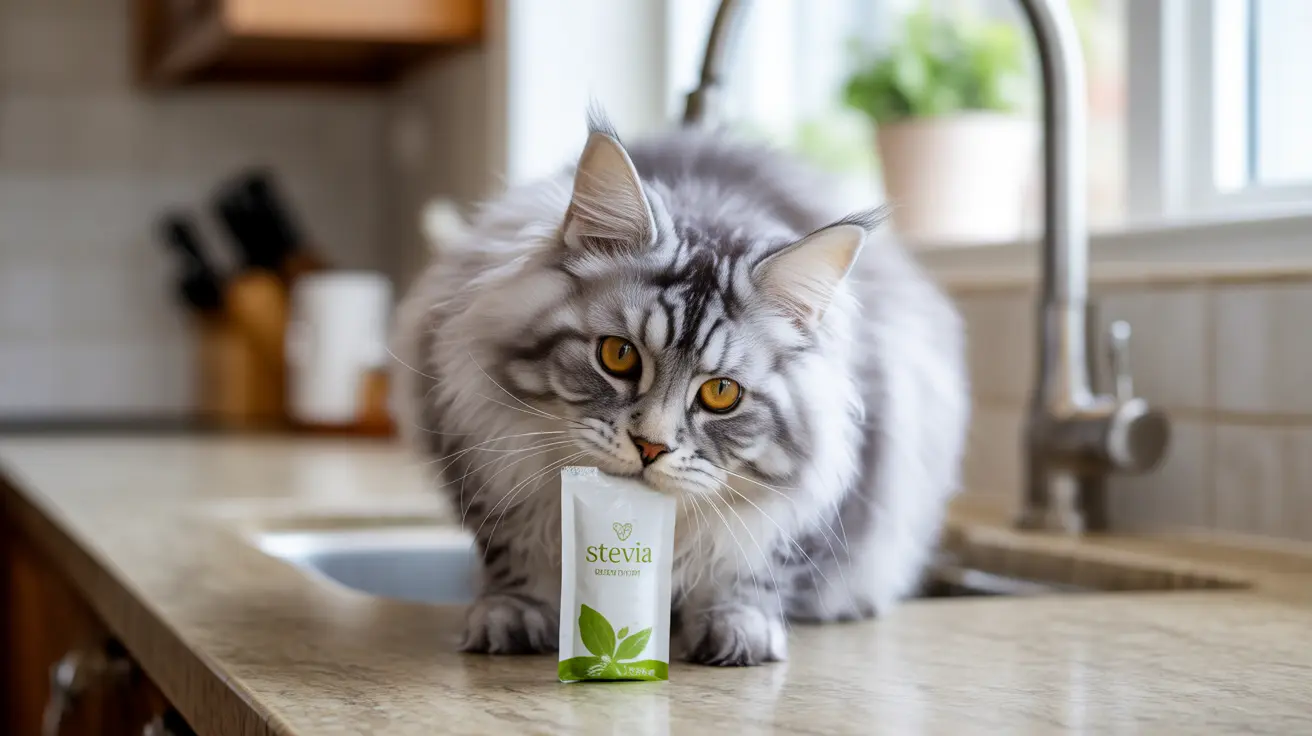Understanding Stevia and Cat Safety
As more people turn to natural sweeteners like stevia in their diets, pet parents often wonder about its safety for their feline friends. The good news is that stevia is not considered toxic to cats, but there are important factors to consider before allowing your pet any exposure to this popular sugar substitute.
In this comprehensive guide, we'll explore everything you need to know about cats and stevia, including its safety profile, potential effects, and why cats don't actually need or benefit from sweeteners in their diet.
What is Stevia and How Safe is it for Cats?
Stevia is a natural sweetener derived from the Stevia rebaudiana plant, commonly used as a zero-calorie sugar alternative in human foods and beverages. While the ASPCA and other veterinary authorities classify stevia as non-toxic to cats, this doesn't mean it should be intentionally added to your cat's diet.
If your cat accidentally licks some stevia or consumes a small amount, there's typically no cause for immediate concern. However, larger quantities could lead to mild digestive issues.
Potential Effects of Stevia on Cats
While stevia isn't toxic, cats might experience some mild side effects if they consume it:
- Temporary digestive upset
- Mild diarrhea
- Stomach discomfort
- Changes in appetite
These effects are usually temporary and resolve on their own, but it's important to monitor your cat if you notice any unusual symptoms.
Why Cats Don't Need Stevia
Cats are obligate carnivores, which means their bodies are designed to process and utilize nutrients from animal proteins. More importantly, cats lack the ability to taste sweetness due to a genetic adaptation. This means they receive no pleasure or benefit from sweet substances like stevia.
Their unique digestive system is optimized for processing meat-based proteins and fats, making any form of sweetener – natural or artificial – unnecessary in their diet.
Stevia Versus Other Sweeteners
While stevia is generally safe, it's important to distinguish it from other sweeteners that might be more problematic:
- Xylitol: While dangerous for dogs, recent research suggests it's less concerning for cats
- Artificial sweeteners: Most are non-toxic but can cause digestive issues
- Sugar alcohols: May cause more significant digestive upset than stevia
Best Practices for Cat Owners
To ensure your cat's safety regarding stevia and other sweeteners:
- Keep stevia products out of your cat's reach
- Check ingredient labels on any human foods your cat might access
- Stick to veterinarian-approved cat foods and treats
- Contact your vet if your cat consumes large amounts of any sweetener
Frequently Asked Questions
Is stevia safe or toxic for cats if they accidentally eat it?
No, stevia is not toxic to cats. While it's best to avoid intentional feeding, accidental consumption of small amounts typically doesn't cause serious problems.
Can stevia cause any digestive problems or side effects in cats?
Yes, consuming stevia might cause mild digestive upset in some cats, including temporary diarrhea or stomach discomfort, especially if ingested in larger amounts.
Do cats taste sweetness from stevia or benefit nutritionally from it?
No, cats cannot taste sweetness due to their genetic makeup and receive no nutritional benefit from stevia or any other sweeteners.
How does stevia compare to other sweeteners like xylitol regarding cat safety?
Stevia is generally safer than many other sweeteners. While xylitol is dangerous for dogs, it appears less problematic for cats, though all sweeteners should be avoided in feline diets.
Should I ever give my cat treats or food containing stevia or other sweeteners?
No, there's no reason to give cats foods containing stevia or other sweeteners. Stick to species-appropriate, veterinarian-recommended foods and treats.
Conclusion
While stevia isn't inherently dangerous for cats, it serves no purpose in their diet and could potentially cause mild digestive issues. As a responsible pet parent, it's best to focus on providing your cat with appropriate, meat-based nutrition and avoid unnecessary additives like sweeteners, even natural ones like stevia.






